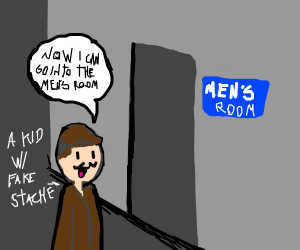I feel lazy today. Besides, I don’t think I can add much to this Mallard Fillmore comic unless to add a list of more words that lots of folks get wrong. But you know all those, right?
Author: Patricia Nelson
Sometimes a Plural is a Singular
Usually a plural is a plural. Simple enough. For example there’s this:
Our sanctioned cloud services contain sensitive and confidential information, from customer information to partner information…
Services is a plural, right? So you use a plural verb, in this case “contain.” But what if that plural is part of the name of something? Take this headline, for example:
Amazon Web Services Adds New Services to Bolster Cloud Security
And inside the article,
The company is launching the new Amazon Web Services (AWS)…In total, AWS is adding five new encryption and security features to S3 to help protect cloud storage, including default encryption, permission checks, cross-region replication access control list overwrite, cross-region replication with KMS (Key Management Service) and a detailed inventory report.
Turns out that Amazon has a department (or team, or something) named “AWS” for “Amazon Web Services.” So when you write about the whole named organization, you have a singular!
So heads up: Think about what you’re writing about!
And now I’m going to throw you a curve: “United States,” is is singular or plural?
Well, it’s singular now. Back in Abe Lincoln’s day and earlier, it was plural. People would say “these United States” instead of “the United States.” Hmm.
Circumlocution
I recently read an article about a book of words that English should have but doesn’t. (I tried to find it, and discovered there must be a million articles on the subject, so I suggest you do a search on “words not in English” or a similar phrase and go surfing. You’ll even find quite a few if you limit yourself to Scientific American.
Which brings us to a philosophical question: If English doesn’t have a word, can we even think the thought that the word represents? Yes! We use a circumlocution.
A circumlocution is a way of describing something without using the actual word; saying the word’s definition, as it were, or a metaphor of some kind for what the word is about. Usually we think of a circumlocution as a way to avoid using an embarrassing word; we sometimes call these euphemisms or “beating around the bush.”
It turns out English is full of idioms that are circumlocutions; today at breakfast I used a circumlocution and got teased about it; I decided this expression was a good subject to write a post about.
Four of us were enjoying breaking our nighttime fast (circumlocution for breakfast) and the coffee flowed generously (circumlocution for I drank a lot of coffee). Presently I had to get up, and I said, “Excuse me, I need to go use the men’s room.” (an obvious circumlocution for, um, what I intended to do in there (another circumlocution)). My buddy said, “Hope everything comes out all right.” (another one) And everyone laughed. This exchange would make no sense to anyone from a culture that had no taboos on scatology, but it made perfect sense to us American English speakers.
If you listen for them, I bet you’ll hear lots of circumlocutions in normal conversation.
And because I like to include pictures in my posts, I did a search on “men’s room comics” and found this example of not intending a circumlocution:

Sometimes “Their” is a Plural
For years grammarians and writers have unsuccessfully tried to figure out a good singular alternative to “him or her” (and its variants), because using three words is awkward. We have examples going clear back to Edmund Spencer of using the technically plural “their” or “they” as that singular. We even call it the singular they.
For example:
Somebody left his or her car running.
Usually we say
Somebody left their car running.
Sometimes you can recast the sentence to avoid the problem:
A car was left running out front.
But let’s face it, the singular they is pretty useful, and I think we curmudgeons just have to learn to live with it.
PS—I ran into an interesting (read tactful) use of the singular them:
Individuals who have shared intimate, nude or sexual images with partners and are worried that the partner (or ex-partner) might distribute them without their consent can use Messenger to send the images to be “hashed.”
Now having said all that, “they” and “their” are legitimate plurals, and you should be alert for when you have an actual plural. Here’s one where a professional writer (and the editor) missed the boat:
Kids will flock to a natural play area that sparks their imagination.
Plural “kids,” plural “their”—so far so good. But what about “imagination”? That should be a plural! Each kid has his or her own imagination, so the sentence should read
Kids will flock to a natural play area that sparks their imaginations.
I won’t embarrass the writer by identifying him. (I considered a little tongue-in-cheek humor by using “them” or “the person,” but I figured out that the writer is a guy, so I can safely use “him.”)
Mainly so I can have a picture in this post, here’s part of what he was writing about:

Lots of People Get this Wrong
“Who,” among other things, is an interrogatory pronoun. We use it when we ask a simple question about someone.
Who ate the last cookie?
To use “who” correctly this way, you need two things:
- The “who” must be first.
- “Who” must be the subject of the sentence.
The problem is that being the first word in the sentence is a stronger signal than being the subject of the sentence, and that leads to people using “who” when they should use “whom.” For example:
Who do you think ate the last cookie?
The subject is “you,” making that “who” be the direct object, which means you need “whom.” Here’s the sentence in declarative form to make it easier to see:
You think whom ate the cookie.
Let’s change the pronoun to make it more intuitive, because I have a surprise for you:
You think him ate the cookie.
“Huh??? Shouldn’t it be ‘You think he ate the cookie.’?” you ask.
And yes, you’d be right. “He” is the subject of the subordinate clause “-he ate the cookie,” even though the whole subordinate clause functions as the direct object. So in a declarative sentence, with the subordinate subject right there in the clause, “he” is correct. Sorry to have to throw a grammatical weasel at you, but when you drag the word to the front of the sentence, as you must do when you ask a question, you have to use “whom” to warn your reader that you have a direct object coming up.
All that to praise the porcupine in this Grizzwells comic for getting it right:
Simple version of the rule: If the question has two verbs, use “whom.”
A little Quiz
Scott Meyer is a pretty funny comic strip artist and writer. This recent comic made me twitch. See how many mistakes you can count. You should be able to find at least one in every panel. I counted more than a dozen. I don’t think he’s writing about me; I corrected him only once and that was years ago.
Two Quickies
First, a vocabulary lesson. The humor in this comic is called a “mondegreen,” which I wrote about in the past. Good old Frazz.
The other one is a reminder about the rules in Scrabble: Acronyms are not allowed. HOH is the structural formula for water. We laypeople usually use H2O. Thank you, FoxTrot.
Annnd a bonus, because it’s an inside joke. Note also that the company sign also points inward, not out, to potential customers. Well, maybe it’s an inside wall, not a window.
A good Explanation of Why Hyphens are Important
I’ve mentioned the Oxford comma several times over the years. I’ve mentioned hyphens and dashes now and then, too, even compounding of adjectives. Well, here’s some of that again: compound adjectives.
Here’s the rule: If two (or more) adjectives together modify a word, hyphenate them. (If the first word happens to be an adverb, the hyphen can be optional, especially if it’s a common phrase.)
Okay, here’s a compound adjective done wrong:
Since “hand job” is a real thing, apparently (something salacious, I guess), the paper has pretty well embarrassed itself, because they meant “first-hand,” which is also a real thing. The error occurs inside the article, too, as “first hand experience.”
No wonder newspapers are on the decline: They are getting rid of their copy editors!
PS—Today I ran into a headline from someone who did it right:
Newberry Cabin, mammoth fossil provide science students hands-on learning opportunities
Also from a newspaper, by the way, the Star-Telegram. (Their name is a compound noun, not a compound adjective.)
Hah! I Found a Mistake in One of those Lists of Facts
The list is titled English language did you knows, and it’s here. It’s someplace on did-you-knows .com, too. The rest of the list seems reasonable enough, but this goof makes me suspicious of the veracity of the rest of the list, even though no doubt at least some of them are true.
Anyway, here’s the mistake:
The first English dictionary was written in 1755
That’s a reference to Samuel Johnson’s dictionary, the most famous early dictionary, but at least a dozen dictionaries preceded it. Here’s a quote from Wikipedia, and easy enough place to do research in.
Johnson’s dictionary was not the first English dictionary, nor even among the first dozen. Over the previous 150 years more than twenty dictionaries had been published in England, the oldest of these being a Latin-English “wordbook” by Sir Thomas Elyot published in 1538.
So there.
While I’m at it, the reference to “durst” being the past tense of “dare” isn’t quite right. “Durst” is obsolete. We use “dared” now. This list appears to be a collection of statements for several sources of varying quality.
By the way, the statement about “e” being the most common letter is true. The 12 most common letters, in order of frequency are etaoinshrdlu, a list I happen to have memorized.
Poor Old Adverbs—They are so Misused
First, I see now that we’re using adjectives as verbs! “Harsh,” an adjective is now in style as a verb: “Don’t harsh my, um whatever.” I suppose “criticize” has become too long a word for some folks to use. Harrumpf.
But now that I mentioned verbs and adjectives, that leads to adverbs, another word that adjectives frequently replace. Here’s a Pickles to illustrate:
I don’t often see the guy correctly correcting the gal’s grammar in the comics, but in this case, he’s right. This mistake is easy to make; adjectives are typically shorter than their adverbial counterpart. See the reference to “harsh” above.
Now, having defended the adverb, I have to add that you can usually skip adverbial constructions correct or incorrect altogether. That comic isn’t a good example of leaving out adverbs (they’re used substantively here, but I digress), but most of the time, you make your writing tighter and punchier when you leave out the adverbs and use a good verb, one better than “make” and “do.” And please, try never to use “very”!